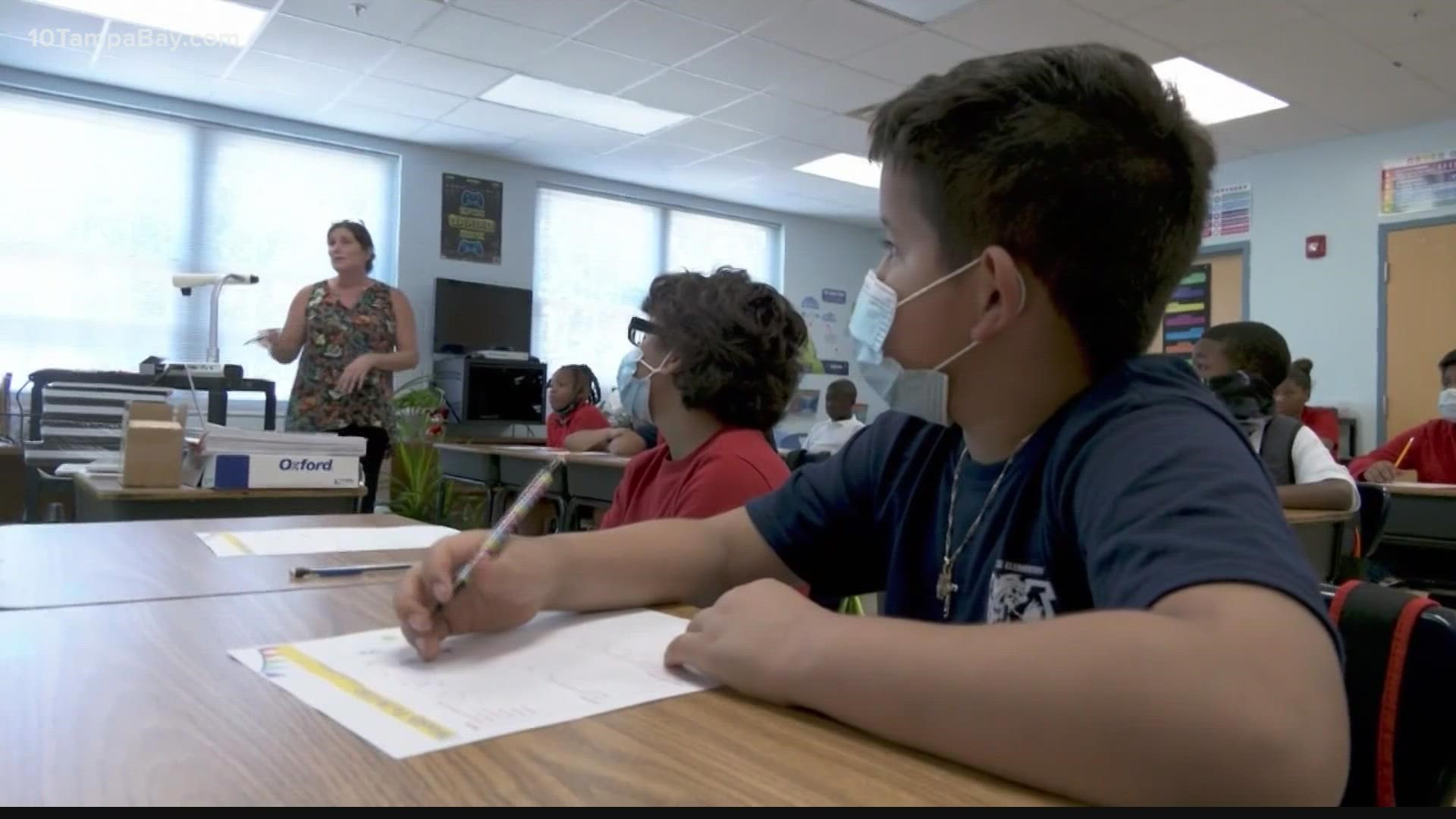TAMPA, Fla. — Kids across Tampa Bay are back in school, but returning to more normal social activities is a struggle for some families, amid concerns during the ongoing coronavirus pandemic.
Dr. Jennifer Katzenstein, director of Psychology & Neuropsychology at Johns Hopkins All Children’s Hospital gives us three things to help ease that social anxiety.
- Talk with your kids about those initial plans and make sure the plans are activities they enjoy:
“Don’t start off with something that they don’t even considerably like in the first place, because then they won’t want to do it from the start. So choosing something that we like. Talking about it together.”
- Set them up for success with tools to make them feel in control and ways to handle worries as they come:
“We have our coping skills in place. These are going to be deep breaths. These are going to be additional opportunities for meditation or some language that we use. For example, ‘we are going to keep our social distance and stay safe.’”
- Plan a reinforcer to encourage your child:
“So, after this, we’re going to be able to go get ice cream or you’re going to be able to watch your favorite show for 20 minutes or use your electronic device for 20 minutes.”
Dr. Katzenstein says mask bullying has also been a problem she’s continued to address throughout the pandemic, and she says it’s happening to kids whether they’re wearing them or not.
“Bullying for wearing a mask and interestingly, bullying for not wearing a mask as well," she said. "Cracking down on that immediately, so if there is any mask bullying, mask teasing happening, that it is not being tolerated in our schools.”
To combat it, she tells parents to set aside daily time where they’re actively chatting with their child.
“What’s been going on, tell me a little bit about your day, not asking a lot of questions over and over, really sitting and waiting for that response,” she said.
Dr. Katzenstein says that gives parents a feel for what the day-to-day looks like for their child, and helps them spot changes in moods and behaviors.
If mask bullying is a problem, she suggests preparing them for those uncomfortable interactions with a prepared answer.
“Giving our kids a line that they can say if someone is teasing or bullying them," she said. "So, if someone says something about them wearing a mask, making sure that they have a statement prepared to respond back such as ‘I’m keeping myself and you safe during this time.’”

